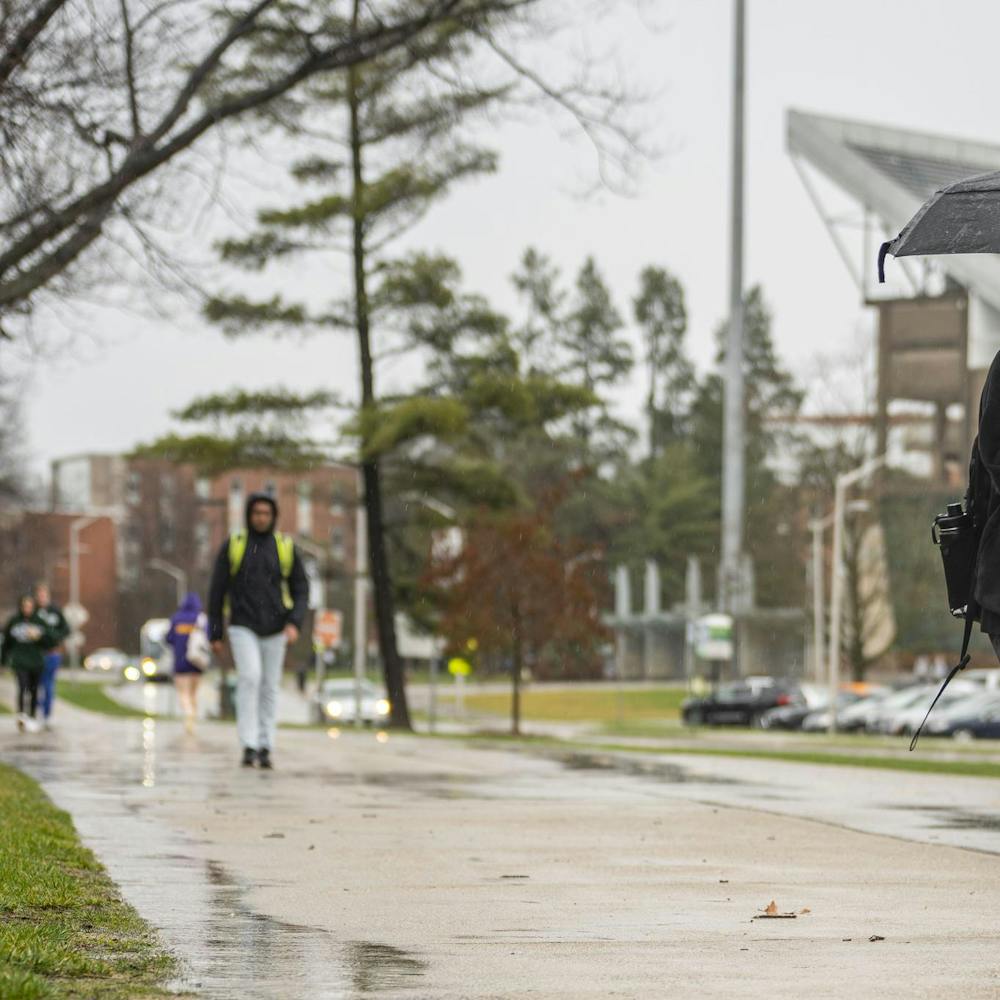I've been aware of the Michigan sex offender database for years, but like most people, I've never looked at it that closely. After last Tuesday's article ("Web site to post sex offenders' pictures" SN 2/8), I decided it was time to educate myself. So I went to www.mipsor.state.mi.us and started poking around.
Tuesday's article quoted several members of the American Civil Liberties Union who pointed out the database singles out one crime, rape, and imposes extra consequences and punishment. Kary Moss calls the registry a "poorly conceived system," and adds that many on the list "have not been determined to be a threat to society."
Ignoring the claim that convicted sex offenders haven't been shown to be a threat to society, the ACLU does have a point. This is a tool that can do a great deal of damage to someone's reputation, even after their prison sentence ends and they've theoretically paid their debt to society.
And Ms. Moss is correct when she says the database is an example of treating rape differently from other crimes. As a society, we do treat rape differently. Rape is the only crime where the trial becomes an arena for defense attorneys to attack the victim, painting them as the one responsible for their own crime. Rape is one of the only crimes where victims are often too ashamed to admit the crime even occurred. So, yes, we do treat rape differently.
But does the database work? Does it provide tools for people to protect themselves? Does it help us to combat rape?
The first thing I noticed, and one of the strongest arguments in favor of the database, is that you can search by the offender's name. In other words, if you're a victim of sexual assault, and if your rapist has been convicted, you can check to see where he (or she) is living.
One of the most important pieces in working with rape survivors is helping them regain a sense of power and control in their own lives. Giving survivors the power to look up their attacker and know where he or she is located is one way to help empower those survivors. They can choose to avoid the attacker. They can choose to confront him or her. They can choose to ignore the database and try not to think about it.
The database also allows you to enter an address or ZIP code and see a list of registered sex offenders living near that address. I entered mine, and suddenly this whole issue became much more real.
Of the 29 records for my zip code, one was for a man living on my street, only a few houses away from my home.
My first thought was of my 4-year-old daughter. What should I do? I could tell her to avoid that house and that man. Or should I go over and demand to know exactly who this man is and what he did? The database doesn't provide a great deal of detail. He's a white male, 70 years old, and he was convicted of third degree criminal sexual conduct. For crimes against minors, the database includes a parenthetical (person under 13) or (person 13-15). Thankfully, no such note existed for my neighbor.
Am I safer now that I know? Is my family safer? I really don't know. Nor can I assume everyone else on my street is safe, just because this man was the only one registered. The majority of rapists and attackers aren't on the database, either because they haven't been convicted or because they've moved to another location and their address hasn't been updated.
There are other problems with the sex offender database. There's a lack of detail about the crimes and their severity. One-time juvenile offenders are lumped together with serial pedophiles. And I'm skeptical of state Reps. Fulton Sheen (R-Plainwell) and Jack Brandenburg (R-Harrison Township) when they claim the database works as a deterrent. True, nobody wants their picture on that database, but nobody wants to spend five to 10 years in prison, either. That doesn't stop rape from being one of the most frequent violent crimes in our country. As for the accuracy of the database, a disclaimer on the first page reads, "information provided by convicted sex offenders is often submitted intentionally in error."
Does that mean the database doesn't work? Not at all. The sex offender database is a tool, and nobody ever claimed it was perfect. But it does accomplish several key goals. The first is to provide a measure of safety and comfort for rape survivors trying to retake control of their lives.
Of equal importance is the fact that the database takes rape out of the shadows. Rape is a crime that thrives on silence, and the database helps break that silence. It shows us the truth: Rape is real. Rapists are real. They aren't caricatured villains from late-night TV. They're ordinary people, living in the same towns, the same streets as the rest of us.
Jim Hines is the male outreach coordinator at MSU Safe Place. Reach him at jchines@sff.net.






